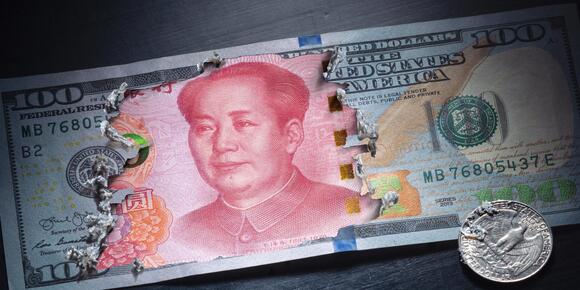Get updates delivered to you daily. Free and customizable.
Markets Insider
China and Saudi Arabia sign a $7 billion currency swap agreement, adding to de-dollarization push
By Aruni Soni,
2023-11-20Expand All
Read in NewsBreak
Comments / 0
Add a Comment
YOU MAY ALSO LIKE
 Most Popular
Most PopularThree Rivers, MI2 days ago
Orange, CA6 days ago
Benton Harbor, MI3 days ago
Westminster, CA4 hours ago
Morristown, NJ28 days ago
Tennessee, IL16 hours ago
Get updates delivered to you daily. Free and customizable.
Welcome to NewsBreak, an open platform where diverse perspectives converge. Most of our content comes from established publications and journalists, as well as from our extensive network of tens of thousands of creators who contribute to our platform. We empower individuals to share insightful viewpoints through short posts and comments. It’s essential to note our commitment to transparency: our Terms of Use acknowledge that our services may not always be error-free, and our Community Standards emphasize our discretion in enforcing policies. We strive to foster a dynamic environment for free expression and robust discourse through safety guardrails of human and AI moderation. Join us in shaping the news narrative together.


Comments / 0